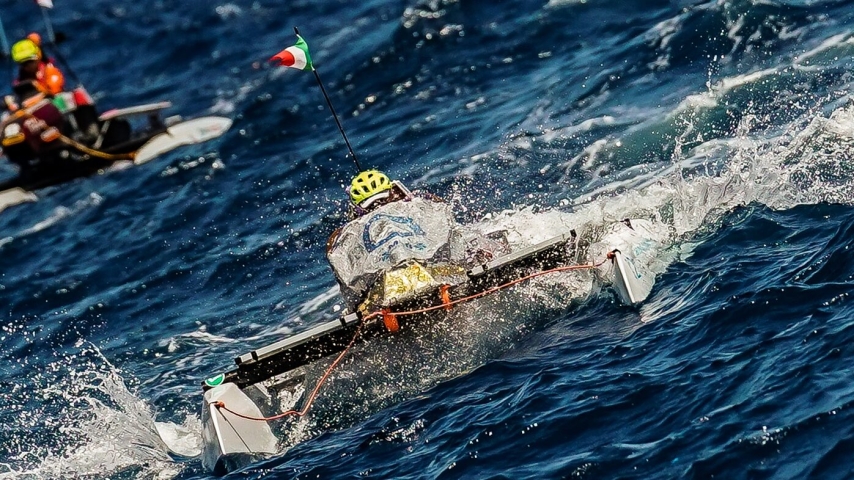
Energy boat challenge website
An innovative team has integrated a navigation system and a smart ring into their vessel for the Monaco Energy Boat Challenge, marking a first in AI application for this competition.
Artificial intelligence has quietly permeated various fields, and now it's making its mark in the nautical world, specifically in racing. An Indian team, participating for the third time in the Monaco Energy Boat Challenge, has integrated AI into their competition boat in several ways. First, with a navigation system. "Last year, during the endurance test where the pilot had to cover 2.5 kilometers between points A and B, our pilot didn't know the exact direction to take," recalls Krithesh Sudhakar, a data analyst with Team Sea Sakthi. “He had to guess or use a compass. There was a lot of current, and he was often pushed off course. Other teams faced the same problem: no one could find the optimal route.”
In response, the team has spent over a year developing a solution similar to those used in vehicles. "What we've created is akin to Google Maps. When you take a new route, the system calculates a new itinerary. It's the same at sea, allowing us to save significant CO2 emissions," explains Sudhakar. An algorithm displays the destination on a screen and an arrow guides the pilot. It also shows battery voltage, temperature, and boat speed, though not in the detailed map format drivers are used to with Waze or Google Maps. "We’re on water, so there are no roads," jokes the newcomer to the Monaco Energy Boat Challenge. "We just follow the arrow." After initial trials in Monaco, the results are very positive. “The pilot found it very useful, and the directions automatically corrected. I believe this can be further improved and become crucial for nautical racing.”
The second AI application focuses on the pilot's performance. In partnership with the Indian company Ultrahuman, Team Sea Sakthi developed a smart ring that provides essential health data to a team onshore via telemetry. "It's very similar to an Apple Watch, but in a ring," Krithesh explains. The idea came from last year's experience. "During the endurance test, our pilot was so focused on the race that he forgot to stay hydrated. The intense four-hour race under the sun led to dehydration, a loss of confidence, and decreased performance. Had he stayed hydrated, he would have performed better and been faster." The smart ring, named Ring Air, directly transmits data to Krithesh, who monitors and responds accordingly. The team collects data on body temperature, heart rate, and more. “We communicate with the pilot via radio, telling him to drink water or relax. We understand what’s happening in his body.”
Wearing the ring daily, even outside of races, gathers valuable data on stress levels, fatigue, and sleep quality—crucial for peak performance. This technology, just a year old, is expected to be optimized in the coming years and might become standard in nautical racing and other sports.
Across from the Indian team at Quai Louis-II, Cambridge University students are working on their boat. It's the prestigious UK university's first participation in the Monaco Energy Boat Challenge. Like several other competitors, the British team has opted for hydrogen propulsion. This choice has become more popular recently, as hydrogen meets the teams' environmental expectations. "We have a fuel cell that uses hydrogen and air," explains Sanadi Ilandaridewa from Cambridge. "A chemical reaction in the fuel cell produces electricity, charging our batteries that power our motor."
While the function is appealing, it's the environmental benefits that stand out, depending on how the hydrogen is produced. SBM Offshore has provided the teams with green hydrogen generated by a floating platform installed earlier this year, using solar energy. "The green hydrogen we use means we operate with zero emissions, only releasing water vapor as small droplets. There's nothing harmful to the environment," Sanadi explains.
Hydrogen technology also holds logistical potential. Although current fuel cells are heavy, advancements are expected soon. "Hydrogen could revolutionize transportation, including boats and cars," Sanadi adds. However, safety concerns about hydrogen's flammability persist. "Safety is a huge concern for the competition," Sanadi notes. "But the technical committee works hard to ensure everyone's safety." Despite hydrogen's highly flammable nature, no incidents have occurred in the competition since its introduction in Monaco.
